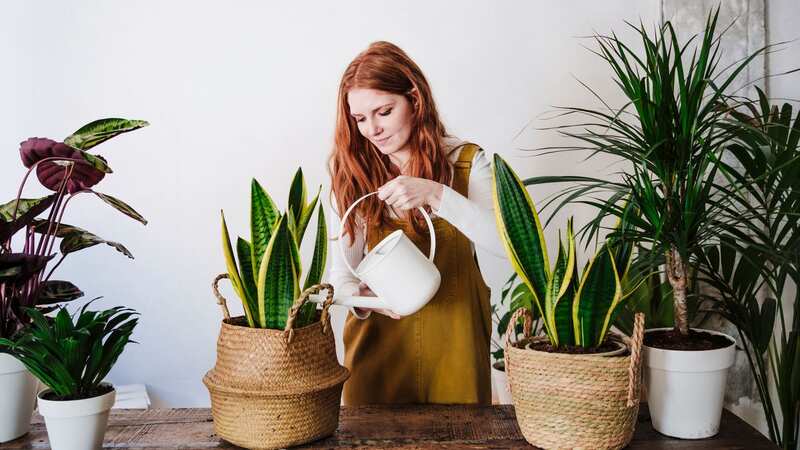Plant doctor warns against using TikTok's trending 'plant hacks' at home

A plant doctor has prescribed some much-needed advice for house plant lovers utilising some of the more prominent TikTok plant hacks, advising they can do ‘more harm than good’ to their beloved pot plants.
With the #planthacks hashtag so popular it’s received more than 1.5 billion views to-date, top creator tips including polishing plant leaves with mayonnaise, watering plants with remaining pasta water, using coffee grounds as a fertiliser, and using sugar to promote growth, have been championed by content providers claiming to offer your house plants an environment to thrive in, rather than just survive in.
However Dyer Plant Doctor and Horticultural Expert at Patch Plants, Kelly Dyer has told how many of these TikTok tips can pose more of a threat to your beloved plants than you may think.
Read more: 'I took DNA test for a laugh - and accidentally uncovered my mum's devious past'
Here’s her advice on the top TikTok houseplant hacks…
 Viral sausage roll debate leaves Brits confused about how to order at Greggs
Viral sausage roll debate leaves Brits confused about how to order at Greggs
Bottom Watering (335.1 million views)
While this is the most viewed plant hack on TikTok and a good option for some plants, as minerals aren't being flushed through the soil, if your plant doesn't have many roots or is not drawing up the water for active growth, it could end up sitting in wet soil, leading to root rot.
Aquarium Water (274.9 million views)
According to TikTok, if you have a freshwater fish tank, the water you remove during a water change contains valuable nutrients like nitrogen that plants can benefit from. However it shouldn't be used if you have added any chemicals to the tank and it definitely shouldn’t be used if the water isn't changed frequently, because it may be too high in minerals and over-fertilise your plants.
Sparkling Water (131.5 million views)
While some TikTok creators suggest that sparkling water can help liven up houseplants by stimulating them to take up more nutrients from the soil, providing fresh compost through re-potting and regular feeds is a much more tried-and-tested method.
Pasta Water - 96.8 million views
Many TikTok creators recommend keeping some pasta water set aside as feed for your plants, however the water is often starchy and would leave a residue on the soil surface of houseplants, which can look unsightly and lead to unwanted mould.
Playing Music (171.4 million views) and Talking (56 million views)
While both of these don’t pose any threat to your pretty plants, there is not enough scientific research to support these.
 Drink-driver steals JCB digger to smash into family house in revenge attack
Drink-driver steals JCB digger to smash into family house in revenge attack
Coffee Grounds – 4.8 million views
While it's true that coffee grounds contain some of the macro-nutrients that plants need, this should not be used as a substitute for a balanced houseplant feed. This creates a barrier to water because of the fine particle size and risks changing the pH of your soil.
Sugar – 3.3 million views
Adding sugary water can reduce the plant's ability to absorb water, and could lead to the build-up of bacteria, and attract unwanted pests.
Mayonnaise – 605,200 views
With many TikTok creators encouraging plant lovers to use the condiment to polish their plant leaves, there’s a risk of clogging up your plant’s stomata (cells that open and close as the plant transpires, exchanging gases and releasing moisture into the air) and negatively affecting its overall health in the long term. Dyer says there are many better options available, which include dusting, wiping with a damp cloth, natural plant invigorators or leaf shine sprays.
Read more similar news:
Comments:
comments powered by Disqus

































